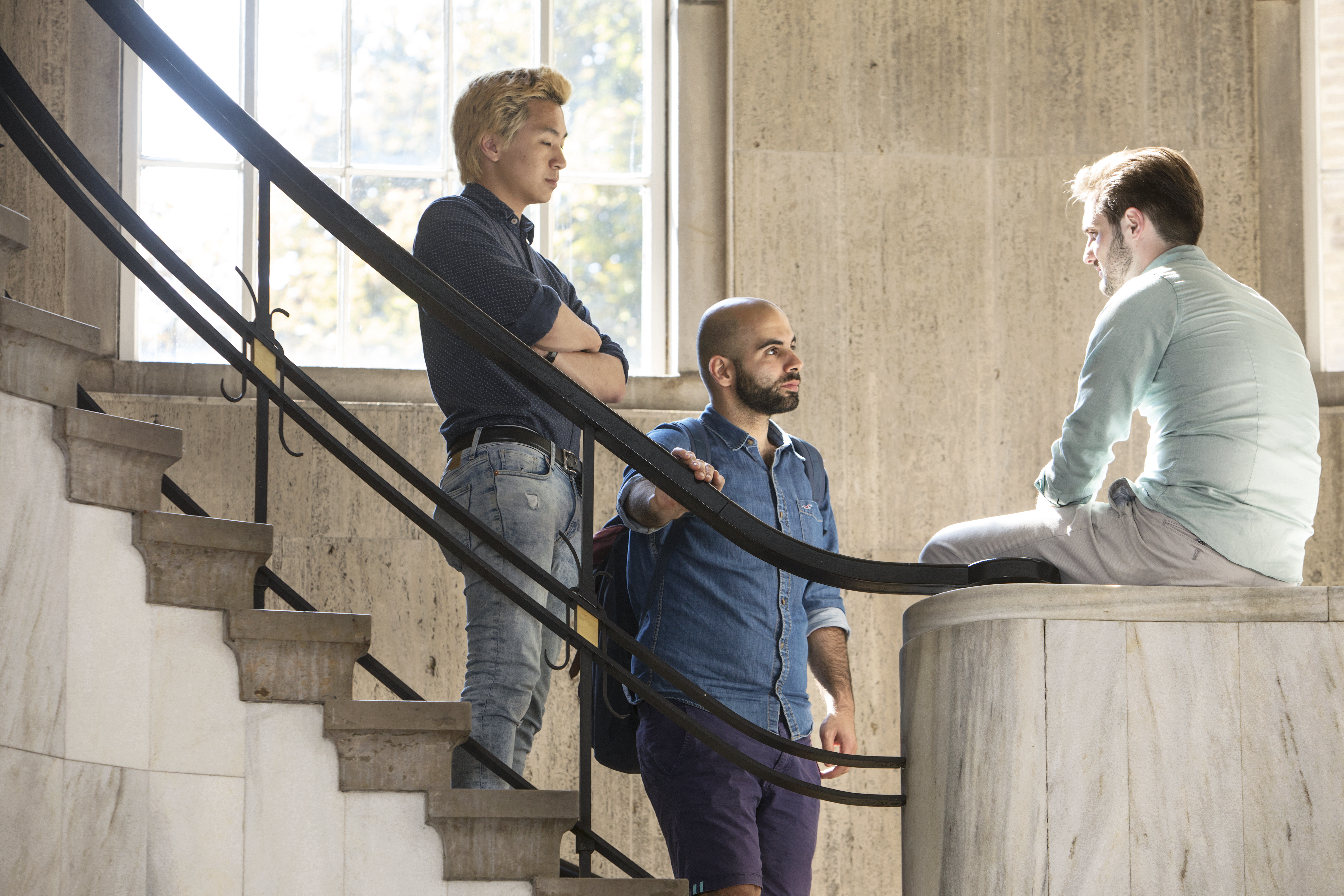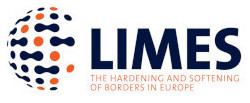Training
>> Training Programme
>> Secondments
>> Information on participating Graduate Schools
-
>> Training programme
The content of the training programme is built around four employability elements: academic knowledge, professional experience, general competencies or skills and personality. It is spread over three components: 1) a general, more content- and discipline driven doctoral training programme, focusing on research skills, 2) the employability training programme, and 3) the partner cooperation programme. The latter two elements focus on transferable skills.
1. The doctoral training programme is provided by the graduate school of the relevant UM faculty. It integrates research skills trainings with content-driven meetings and general project management trainings (thus covering expertise and academic skills). The training at all graduate schools include courses on theory and methodology, setting up an academic research project, academic writing, research funding, and specific research skills such as interview training, introduction into research data management, etc.
These trainings enable the candidates to produce solid research and to apply and combine a variety of research methods that allow them to excel in their specific research areas. The doctoral training programme takes place on a bi-weekly or monthly basis and normally consists of sessions of 2 hours.
For more in-depth training, PhD candidates can enrol in courses (8 weeks) of relevant research master programmes at the UM. The newly acquired knowledge and skills acquired through this training programme is tested through presentations, papers, and assignments. Our graduate schools also offer sessions in which PhD candidates present a paper or chapter to another PhD candidate for peer feedback. PhD candidates also participate in colloquia at the departmental or research group level.
2. The employability training programme offers the candidates training/workshops on transferable skills and employability. This training programme is clustered in six joint summer and winter schools of five working days spread over the programme’s duration. They focus on a broad range of skills, as explained in Table ….. The skills trained during these winter and summer schools are tested in a variety of ways such as through practical assignments, peer-to-peer reviews, and brief reflection notes on the acquired skills.
The joint summer and winter schools bring together all LIMES PhD candidates. They aim at enhancing the interdisciplinary and cross-cultural awareness of the candidates, and strengthen the LIMES community. Apart from diplomas and experience in different disciplines, LIMES PhD candidates have different nationalities and cultural backgrounds. This diversity constitutes an added value when being explored, compared, and challenged within a safe environment. Candidates who have been able to develop themselves in a diverse research and training environment have a higher chance to succeed in the increasingly global and innovation-oriented labour market.Overview winter and summer schools and their themes Winter school 1 winter 2020 Interdisciplinarity: Talking across disciplinary boundaries in the social sciences and humanities, mixed methods
Summer school 1 summer 2020 Project management and ethics: time and project management, data management, ethics and research integrity Winter school 2 winter 2021 Internationality: networking, intercultural cooperation and communication, diversity in teams and research content, setting up international collaborations Secondment
summer 2021Tailor-made programme for each candidate: on-the-job training, on-site research Winter school 3 winter 2022 Intersectorality: exposure to industry and society, creativity and entrepreneurship, open science skills, research communication and dissemination (including outreach and engagement activities with the general public and through ‘citizen science’), impact course Summer school 2 summer 2022 Dissemination: visibility of research results (including IP), open access, presentation skills and blogging Winter school 4 winter 2023 Beyond the PhD: grant writing, training for job interviews, labour market strategies, entrepreneurship, personal branding
3. An important element of the LIMES training develops from cooperation with partner organisations. Secondments, mentoring, and presentations (but also informal meetings) with companies and organisations active on the research themes give the candidates insights on issues and solutions in different settings. The specific focus of the research projects guides the cooperation with the partner organisations. Depending on the project, the training covers specialised courses coordinated by the partner organisations, such as training in use of equipment and software, database research, hands-on experience, project management, etc. At the end of their secondment, the PhD candidates are asked to write a three-page report in which they reflect on the non-research skills that they have acquired or improved during this period.
The training and secondment programme addresses the following skills and competences of the LIMES PhD candidates:
- Completing a PhD manuscript in 4 years according to high international academic standards, including the general research skills needed to accomplish this.
- Gaining experience in innovative research methods and tools at the forefront of the humanities and social sciences, such as digital humanities methods, and big data research.
- Being ethically responsible. PhD candidates are knowledgeable about relevant research codes, ethics and laws, and the norms and values behind them. They know how to translate existing norms and values in this area into research practice, including the cooperation with different stakeholders. They have learnt to work with gender and cultural differences in their professional environment.
- Increasing outreach by strategic publishing. Coached by their supervisors, candidates improve their career prospects by publishing in appropriate outlets. This means aiming at a mix of highimpact traditional journals, golden and green Open Access journals, reputed academic publishers, and publishers with a large readership.
- Developing entrepreneurial and communicative skills. The PhD candidates have developed an entrepreneurial attitude towards the research process and the dissemination of results. One focus is to develop research projects jointly with societal stakeholders, and to be in close exchange with them during the execution of the project through the Supervision Teams. Candidates are entrepreneurial when it comes to creating an audience for their research and disseminating their findings through policy papers, media appearances, blogs, or educational activities. To this end, candidates will be trained in outreach activities and form part of the LIMES ESR media team.
- Drawing up a business plan. The LIMES programme provides the option for PhD researchers to receive training on how to transform academic insights into new commercial products and services. Guidance in starting up a company and drawing up a business plan is provided to researchers who want to engage in commercial activities.
- Becoming a professional in project management. This concerns completing a PhD in a timely and successful manner, but also translating one’s ideas into new projects. PhD candidates learn how to write a competitive individual grant proposal and are encouraged to submit their proposal to a relevant funding agency, in order to ensure funding during a next career phase and contribute to the sustainability of the project’s theme.
- Making smart use of personal networks in academia, (public) institutions and industry. Supervisors encourage interaction with professionals from different backgrounds, thereby giving PhD candidates the chance to develop a network of useful contacts.
- Obtaining a teaching qualification. Maastricht University is well-known around the world for its educational system, Problem Based Learning (PBL). PhD candidates have the opportunity to become involved in the participating faculty’s regular teaching programmes and to gain experience in PBL. The supervisor ensures that any planned teaching activity does not interfere with the research and training trajectory, and is mainly encouraged for candidates planning a career with a teaching component (it hence is organised on a voluntary basis). They obtain a recognised University Teaching Qualification (UTQ).

>> Secondments
All LIMES projects include a six-month secondment (2021) at one of the 9 non-academic and 5 academic partner organisations.
During these six months the candidates are exposed to new environments and supported to enhance their intersectoral skills. The built-in secondments are an integral part of each PhD trajectory: they provide the opportunity not only to conduct on-site research, make use of equipment and software, collect information, and interview stakeholders, but also to follow an on-the-job training programme. The PhD candidates training needs for each secondment are defined and included in the Personal Development Plan.

>> Information on participating Graduate Schools
Graduate School FASoS
Our Graduate School of Arts and Social Sciences offers the opportunity to pursue a PhD in the interdisciplinary field of arts and social sciences. You receive a coherent program of introductory courses, intensive supervision and frequent discussion with the senior researchers inside and outside the Faculty. The Programme can be characterized by its international and interdisciplinary nature and the emphasis on cultural and societal issues of the modern world.
The School focuses on four themes:- Politics and Culture in Europe.
- Maastricht University Science, Technology and Society Studies.
- Globalisation, Transnationalism and Development.
- Arts, Media and Culture.
The Maastricht Graduate School of Law
The faculty values the significant contribution of motivated and talented PhD researchers to a vibrant research climate, which is why the recruitment, supervision and training of PhD researchers are set so high on the faculty’s agenda. All these activities are covered by the Maastricht Graduate School of Law. The school is committed to educating young academics and to contributing to the advancement of knowledge through original research. It is dedicated to training excellent law students from all over the world to help them to extend, deepen and actively apply their knowledge, so as to become highly qualified independent researchers. The graduate school offers PhD candidates a stimulating and internationally oriented environment for legal research and aims to contribute to strengthening the faculty’s research profile.
Graduate School SBE
The Graduate School of Business and Economics (GSBE) is SBE’s central authority on academic research and administers SBE’s PhD programme and two research master’s programmes. Research is organized around seven research themes, such as ‘sustainable’ and ‘Creativity, Innovation and Entrepreneurship’. These research themes focus on interdisciplinary solutions to today's global challenges.
